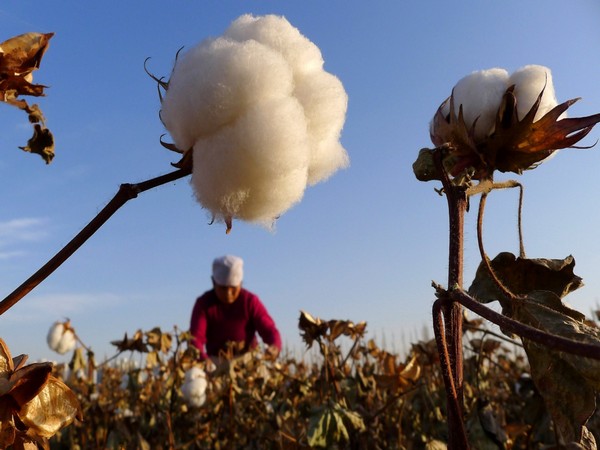Building Sustainable Cotton Farming: Rise for Impact Project Trains Farmers in Uzbekistan
The workshops offered a carefully curated curriculum designed to meet the agro-climatic needs of Uzbekistan’s central cotton-growing regions — including Navoi, Bukhara, Samarkand, Tashkent, Syrdarya, and Jizzakh.

In a significant move to strengthen sustainable cotton farming and uphold fundamental principles and rights at work (FPRW) within cotton-growing communities, the International Labour Organization's (ILO) Rise for Impact Project successfully organized a series of dynamic workshops for farmers from Dustlik district (Jizzakh region) and Syrdarya district (Syrdarya region) on 23-24 April 2025.
These workshops were crafted to foster not just technical knowledge but also build community resilience, financial literacy, and market integration, aligning closely with the broader sustainable development goals for rural livelihoods in Uzbekistan.
Enhancing Cotton Farming Knowledge: Key Themes and Practical Sessions
The workshops offered a carefully curated curriculum designed to meet the agro-climatic needs of Uzbekistan’s central cotton-growing regions — including Navoi, Bukhara, Samarkand, Tashkent, Syrdarya, and Jizzakh.
Topics covered included:
-
Modern Agricultural Technologies: Participants explored the latest cultivation techniques tailored to both domestic and imported cotton varieties, with a focus on boosting both fiber quality and yield.
-
Intensive Care and Resource Efficiency: Experts emphasized practices that conserve water, fertilizers, and energy, highlighting sustainable agriculture’s role in combating climate change.
-
Integrated Pest and Disease Management: Farmers received actionable guidance on identifying, preventing, and managing threats through both chemical and biological methods.
-
Biological Pest Control: New biological solutions were introduced, using beneficial insects like Brackon, Trichogramma, and Zlatoglazka to naturally protect crops.
-
Financial Services and Crop Insurance: Access to microcredit, input financing options, and agricultural insurance solutions were presented to help farmers mitigate risks and invest confidently in their production.
To support continued learning, participants were provided with customized handouts and access to a Telegram group, ensuring ongoing dialogue, mentorship, and resource sharing beyond the two-day event.
Expert Insights: Knowledge Shared by Leading Specialists
The workshops featured a distinguished roster of agronomy and agricultural finance experts:
-
Mr. Alisher Saydaliyev, Scientist Agronomist
-
Mr. Khasan Buriev, Professor at Tashkent State Agrarian University
-
Ms. Dilbar Rashidova, Professor and Head of Laboratory at the Cotton Breeding and Seed Production and Agrotechnology Research Institute
-
Mr. Zohidjon Abdusalomov, Chief Scientist Agronomist at Anguzal Agroservice
-
Ms. Maryam Bokieva, PhD, Editor-in-Chief of Plant Protection and Quarantine Journal
-
Mr. Sardor Khusanov, Representative from ATB “Mikrokreditbank”
Through a blend of scientific presentations, interactive discussions, and practical case studies, the experts empowered farmers to think critically about innovations and to adapt best practices to their unique local environments.
Corporate Participation: Introducing Innovative Agricultural Solutions
Adding a practical dimension to the event, Anguzal Agroservis, a leading Uzbek agricultural firm specializing in microbiological preparations, introduced farmers to its latest range of products. The company's ethos of supporting independent farmer evaluation was emphasized:
-
Free samples were distributed with no marketing pressure.
-
Farmers were encouraged to test the products independently on small plots.
-
The company maintained a neutral presence, focusing on empowering informed decision-making.
This collaboration underscored a key message: farmers are the ultimate decision-makers, and innovation should be guided by practical, farmer-led experimentation.
Expanding Reach: Live Streaming to Broader Communities
To maximize the impact, the workshops were broadcast live via the “fermer.uz” platform, a widely respected resource with nearly 30,000 followers across Uzbekistan’s agricultural sector. This allowed a much larger audience — including those unable to attend in person — to benefit from the expert advice, innovative ideas, and lively discussions taking place.
Feedback and Future Directions: Building Stronger, Knowledge-Driven Communities
Feedback from attendees was overwhelmingly positive. Farmers praised the sessions for their practical relevance, expert delivery, and open learning environment. Many called for additional training on new topics, including:
-
Modern farm management techniques
-
Advanced financial literacy and agricultural entrepreneurship
-
Legal literacy, contracts, and farmer rights
-
Climate-smart agriculture and input management
The Rise for Impact Project aims to continue these workshops, with plans to expand into other regions and to deepen partnerships with educational institutions, agribusinesses, and farmer organizations.
A Foundation for a Resilient Future
By combining scientific expertise, practical knowledge, and a strong community support system, the Rise for Impact Project is not only helping to enhance agricultural productivity but also empowering farmers to build a more sustainable, resilient, and equitable future for Uzbekistan’s cotton industry.
This initiative marks an important milestone in promoting environmental stewardship, economic opportunity, and social rights in one of the country's most critical sectors.










